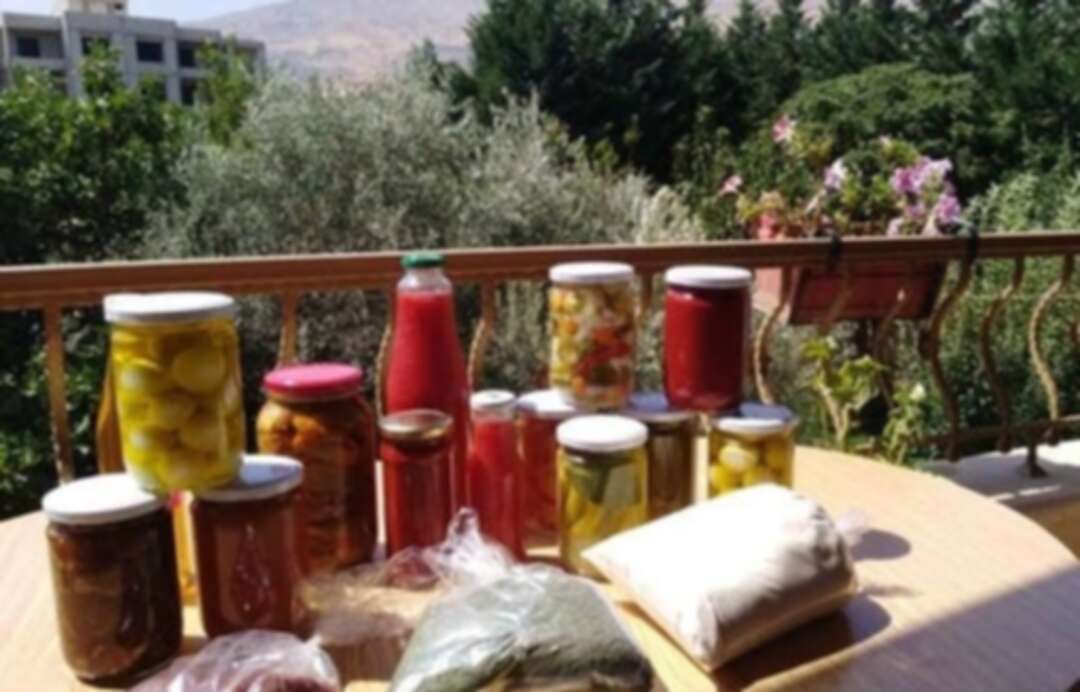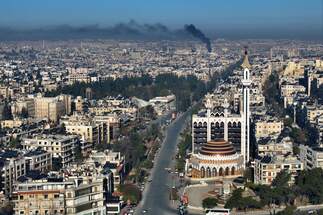-
A glimpse of light for some businesses in Lebanon as they cope with coronavirus

Lebanon's severe economic crisis, along with the coronavirus pandemic, has provided challenging conditions for businesses to survive. Still, some have been able to find light during these rough times after an outpour of community support for local businesses and talents.
As Lebanon rang in the New Year, putting 2020 behind its back was not an easy task, given that the consequences of the chaotic events that unfolded last year are still felt today.
Lebanon was hit by Covid-19 and by an economic crisis that saw triple-digit inflation and the Lebanese pound depreciating by almost 80 percent since the nationwide anti-government protests, which broke out on Oct. 17, 2019.
The currency had been pegged to the US dollar since 1997, at 1,507.5, as Lebanon was and still is highly dependent on imported goods.
https://twitter.com/AlArabiya_Eng/status/1349785625705259009
This was exacerbated by the devastating Port of Beirut explosion last August and that destroyed half of the city, crushing many businesses that were already struggling to keep their doors open.
The World Bank estimated that the massive blast caused between $3.8 billion and $4.6 billion in damages.
In a statement released this week, The World Bank estimated that around 1.7 million people in the country are expected to fall under the poverty line. Of those, approximately 840,000 people will be under the food poverty line.
An opportunity for local businesses
Despite the difficult situation, some local and home-based businesses saw increased support for their work.
Layal Khaled is one of those.
“This
The 29-year-old artist showcases her products on her Instagram page, Smiles for Miles, which she started in 2017 as a source of extra income.
Initially, she did this in the summers, but during her maternity leave in December 2019, she decided to take on working on her art.
In comparison to when she first started, Khaled said that she had seen an increase in purchases over the past year.
In addition to people’s willingness to support local products, the coronavirus pandemic also contributed to the increased number of clientele in Khaled's case.
“Previously, people would have preferred to see items live themselves before buying them, but with the coronavirus and the lockdown, they were … forced to buy online.”
Despite the ongoing crises and the risks that come with it, others saw in the worsened economic situation a possibility to start their own small business.
For 29-year-old Ali Hammoud, the founder of Mounet Em Jamal, the economic situation and the need for an extra source of income to support his parents pushed him to embark on this journey last July.
Hammond’s business focuses on homemade jams, labneh, olives, pickles and olive oil, all of which are prepared by his mother.
“Since the Lebanese pound has depreciated, this means that not everyone can afford to buy imported products,” Hammoud, who has been living in France for 10 years, said.
“Hence, the initiative was based on the equation of benefitting ourselves and others
Hammoud said that they started slowly with limited quantities until people were more encouraged to try their products. With the help of social media, Mounet Em Jamal soon became popular.
Although Hammoud and his parents are relatively new to the business, he said he could “sense support” from the community for his initiative given the country’s economic situation.
“The economic collapse encouraged people to try to find an opportunity during these times to produce locally,” he said, noting that if the collapse worsens, it will also affect the sustainability of these businesses.
Consumer and community support
Nour Hakim, 30, has been buying local products from small businesses for the past year.
As a consumer and a client, Hakim said that her purpose was to support these businesses during tough times.
“I am supporting them, and at the same time, in return, I am getting very good quality products with good customer service and delivery,” Hakim said. “I am going to continue
The community support was also felt by former banker Gisane Yamak, who, along with a group of friends, launched an initiative ahead of the holidays to encourage people to buy from small businesses.
The initiative focused on donating gifts to children across Lebanon, and those willing to contribute would make purchases from local businesses.
Yamak, 45, resorted to social media platforms to share posts about the products they provide, something she was already doing since November as a personal initiative.
“The target was to reach 1,000 gifts. But, we exceeded that target to reach 2,200 gifts, supporting between 20 and 25 businesses selling different items,” she told Al Arabiya English.
Yamak said she hoped that this encouragement among business owners and clients would continue despite the ongoing crises and the challenges facing businesses with no online presence to promote their work.
“Such initiatives are to tell people that these
source: Ghinwa Obeid
Levant
You May Also Like
Popular Posts
Caricature
BENEFIT Sponsors Gulf Uni...
- April 17, 2025
BENEFIT, the Kingdom’s innovator and leading company in Fintech and electronic financial transactions service, has announced its sponsorship of the “Innovation and Sustainable Technology Solutions Competition (GU - IST Solutions), hosted by Gulf University at its main campus.
This strategic sponsorship reflects BENEFIT’s active role in advancing technological innovation and fostering sustainable solutions to future challenges. It also seeks to empower Bahraini youth by enhancing their skills, capabilities, and competitiveness in innovation and solution development—contributing meaningfully to the broader goals of sustainable development across all sectors.
As part of BENEFIT’s active involvement in the competition, the company has announced that Hanan Abdulla Hasan, Senior Manager of Public Relations and Communication, will serve on the competition’s supervisory committee. Her upcoming participation reflects BENEFIT’s forward-looking commitment to championing academic and professional excellence.
Commenting on the occasion, Hanan Abdulla Hasan, Senior Manager of Public Relations and Communication at BENEFIT, said, “We are privileged to support this pioneering initiative, which aligns seamlessly with BENEFIT’s enduring commitment to fostering innovation and nurturing the potential of Bahrain’s youth. Our participation is rooted in a deep sense of social responsibility and a firm belief in the pivotal role of innovation in shaping a sustainable future. Through such platforms, we seek to empower the next generation with the knowledge, skills, and foresight required to develop impactful solutions that address future challenges, in line with the United Nations Sustainable Development Goals 2030.”
Dr. Aseel Al Ayash Dean of the College of Engineering in Gulf University commented, “We extend our sincere gratitude to BENEFIT for their generous sponsorship and support of the Innovation and Sustainable Technology Solutions Competition. This contribution plays an instrumental role in helping us achieve the strategic goals of this initiative, namely, cultivating a culture of innovation and sustainability, encouraging efforts that address the imperatives of sustainable development, and enhancing the practical and professional capabilities of our students and participants.”
The event will bring together a diverse spectrum of participants, including secondary school students, university undergraduates, engineers, industry professionals, entrepreneurs, academic researchers, and subject matter experts representing a wide range of disciplines.
The competition seeks to inspire participants to develop and present innovative, sustainable technologies aimed at addressing pressing environmental, social, and economic challenges. It encourages the formulation of business models that integrate advanced technological solutions with core principles of sustainability. Moreover, it serves as a platform for emerging leaders, entrepreneurs, and innovators to contribute to the advancement of the Sustainable Development Goals, promote the ethos of responsible technology, and demonstrate its transformative potential across various sectors.
Attendees will have the opportunity to view a series of project presentations submitted by participants, covering diverse areas such as eco-friendly product design, smart and sustainable innovations, renewable energy technologies, water conservation and management, waste minimisation and recycling, green architectural solutions, and sustainable transportation systems. Outstanding projects will be formally recognised and awarded at the conclusion of the event.
opinion
Report
ads
Newsletter
Subscribe to our mailing list to get the new updates!






















